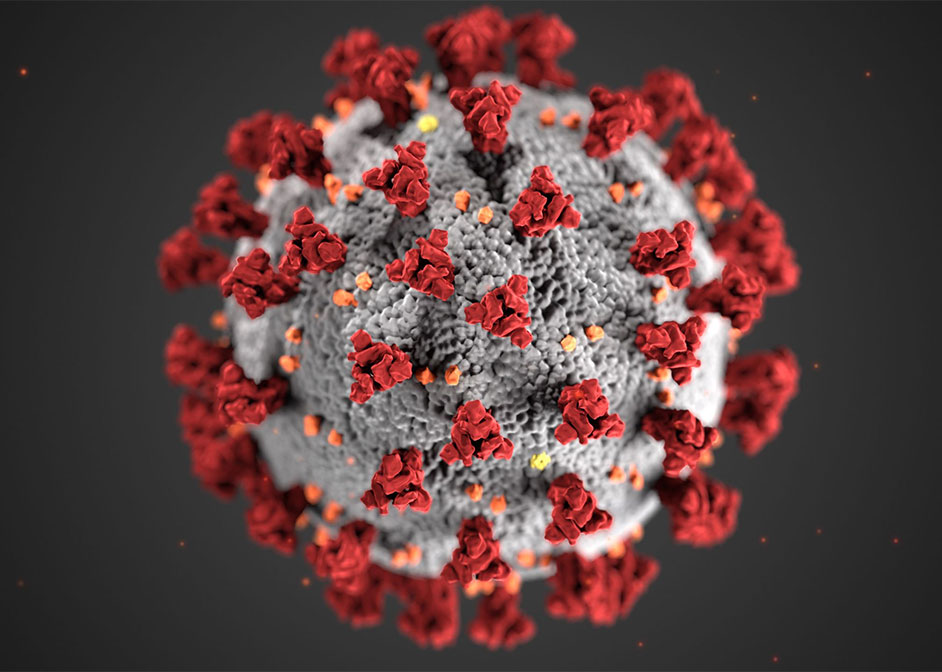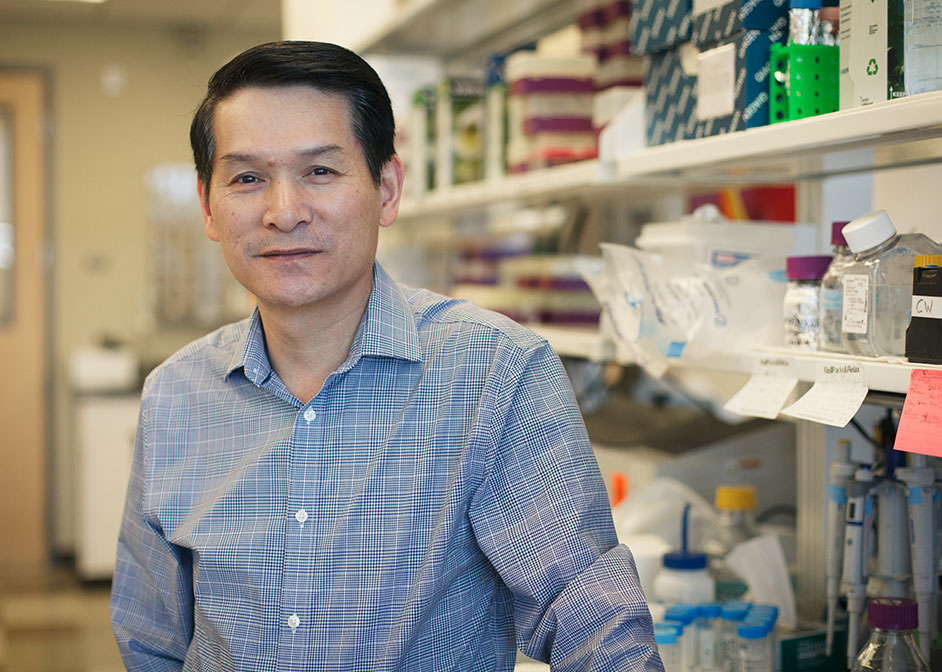Zhang Explores Vaccine Candidates
Not since the mid-twentieth century, amid the polio epidemic, have vaccines or drug treatment been so widely anticipated as those for COVID-19.

In 1955 when the polio vaccine was licensed, the health outlook for millions of children improved and normal life resumed. Still, not all pandemics have found such resolution.
Since the 1980s, more than 70 million people have been infected with the HIV virus, 35 million have died from AIDS, and still no vaccine exists, though a daily drug combination can reduce a person’s HIV viral load to an undetectable level.
Across the world, efforts continue to develop medicines to put the coronavirus to rest, including at the University of Houston.
Exploring Vaccine Candidates for Injection

As the director for the Center for Nuclear Receptors and Cell Signaling, M.D. Anderson Professor of Biology and Biochemistry Shaun Zhang is used to developing new biotherapies and vaccines for unmet needs in cancer and viral infection. Now he’s turned his attention to the greatest unmet medical need before all humankind – a vaccine for COVID-19 – developing three vaccine candidates for injection, which he has evaluated for neutralizing antibody production.
So far, the results look good.
“The data collected from our studies show that our vaccine candidates can generate neutralizing antibodies, which can protect cells from infection by SARS-CoV-2 when tested in vitro," said Zhang. “We are now working on further improvement for the vaccine design.”
Zhang’s vaccine candidates include a subunit vaccine containing either the entire spike protein or the receptor binding portion, which helps the virus enter the target cell, and delivered either by DNA formulation or by a herpes simplex virus-based vector.
Zhang is working to improve the formulations to simultaneously enhance the immune responses, simplify the procedure and reduce the cost of preparation.
- Laurie Fickman, University Media Relations